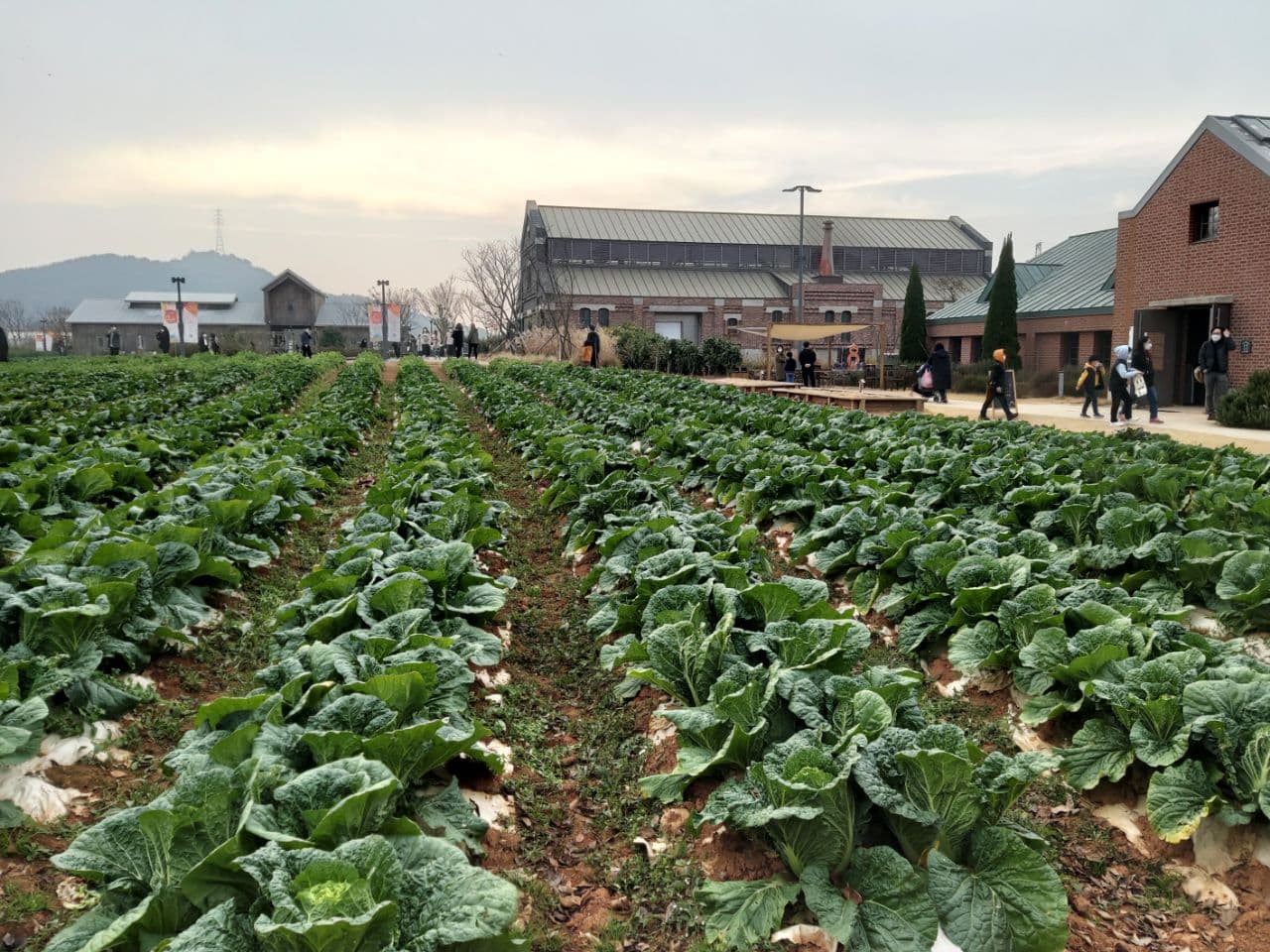Sangha Farm
Experiencing Real Farm Life
Written and photographed by Melline Galani.
Gochang is recognized by UNESCO as an ecologically sustainable development location, which made it the perfect place to develop an organic farm. But what is organic farming? Put simply, it is a method of crop and livestock production that does not involve the use of pesticides, fertilizers, genetically modified organisms, antibiotics, or growth hormones while minimizing soil erosion and degradation, and reducing pollution.
Situated about 75 kilometers northwest of Gwangju in Gochang County, Sangha Farm offers probably the best possible organic farm life experience. It is also the first farm in Korea to produce organic milk. This place was introduced to me by a friend with whom I spent an amazing time at the farm. I did not even know that such places could be found in Korea.
Driving to the farm is the only possible way to go since there is no public transportation available. However, it takes only about one hour to reach it and, once you leave the highway, the roads are beautiful and the view is very relaxing.
The farm itself is quite large, and you realize this once you reach the parking lots (there are three different parking lots available). I would say it is like a big theme park with a lot to see and experience that satisfies even the most sophisticated tastes. From accommodations to weddings and a winter spa experience, the farm has it all and is a hot tourist destination. In late autumn and early winter, visitors can make their own kimchi with vegetables grown on the farm by experiencing a two-day course that includes the spa, a farmer’s dinner, and a pension stay. There are also separate kimchi-making (kimjang) sessions with an instructor, and the participants will each take home three kilograms of kimchi. Home delivery is also possible. All the ingredients, fresh and locally prepared, are provided by the farm.
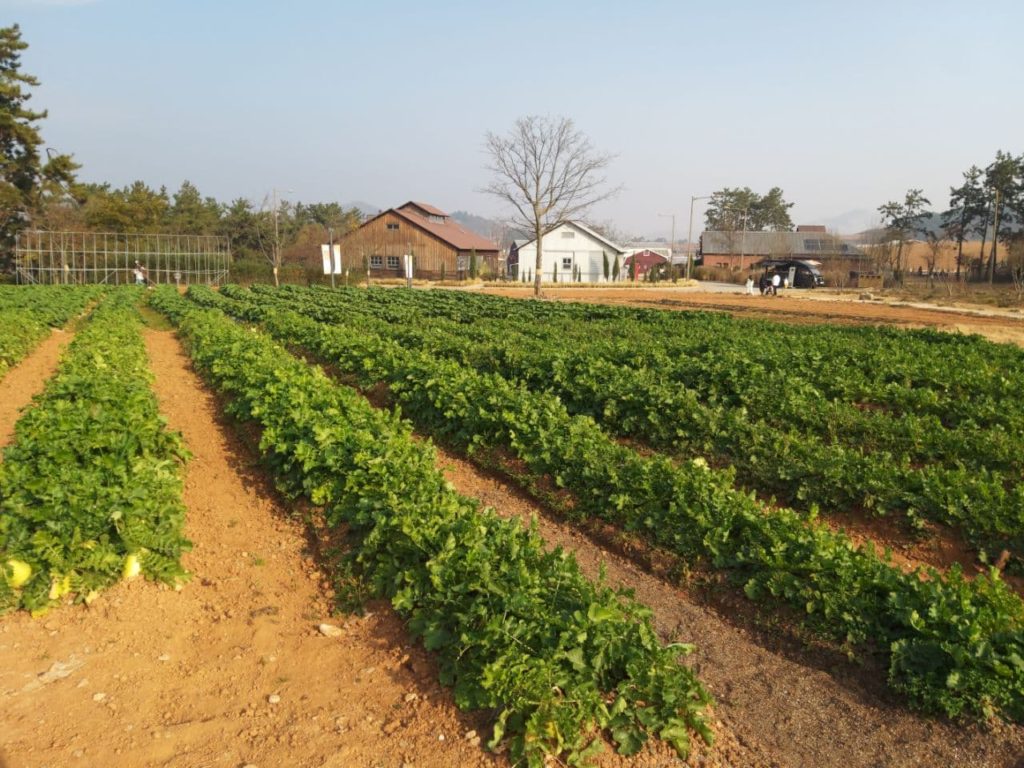
At Sangha Farm, all the herbs and vegetables used for cooking at their restaurant have been grown in their fields. Fruits grown here are used to produce jam at the in-house factory, and the milk produced at the dairy farm is sold at the market and also used as an ingredient for the baking class.
The complex compound consists of a sheep ranch, dairy farm, and an animal farm where children can feed animals like goats, rabbits, calves, sheep, chickens, and deer. There is also a nice coffee shop; two restaurants – one offering Korean cuisine and one offering Western-style dishes; two experience buildings, where kids do all the baking and cooking activities; a small playground for toddlers and young kids; the Farmer’s Village, where the accommodations are; and the Farmer’s Market, where products made at the farm or grown locally are sold. I was really surprised to realize what the dairy products I buy online are actually made here. Of course, I could not leave without buying some. Handmade cheese and jams are also top products sold at the store.
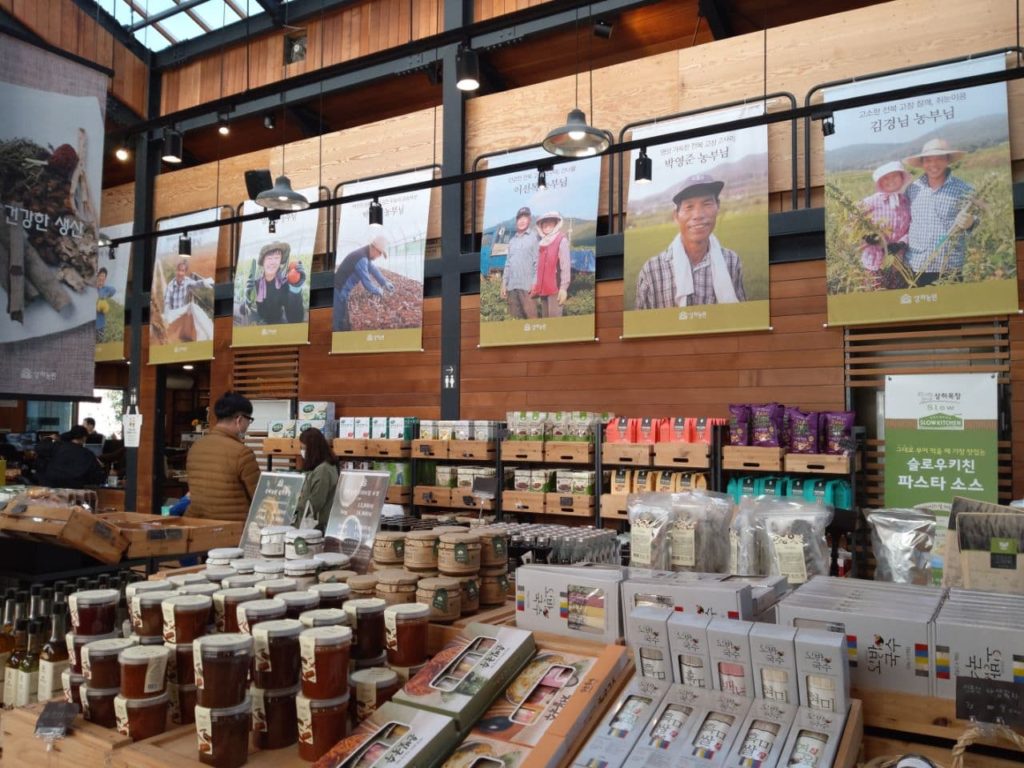
The farm offers a milking tour, where visitors can see cows being milked and milk being processed into cheese and bottled milk, but we arrived too late for that. One thing that I particularly noticed was the lack of odor. I was also impressed to see that the animals were taken good care of and clean.
We had an early dinner at the Sangha Kitchen, the Western-style restaurant. Vegetables from the garden and the sausages made at Sangha are used at the restaurant. We ordered the signature dish, pizza with sausages, mushroom sauce pasta, a salad, and a soft chicken dish, which was the best chicken I have ever had in Korea. The food was delicious and more consistent than I had expected. The restaurant has a wide range of dishes with prices starting from 9,000 won.
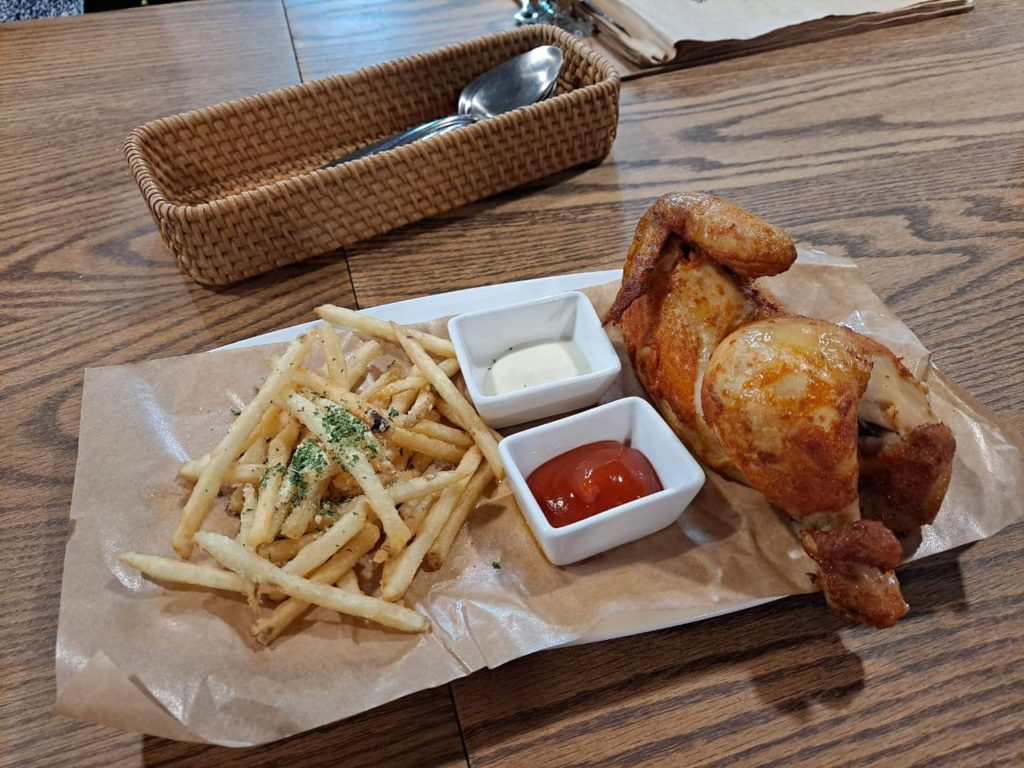
Near the restaurant there is the place where the sausages are made, and there we could see the sausage-making process through wide windows. It was quite interesting to watch, especially for our children. The compound also has a souvenir shop, where original Korean souvenirs can be bought; a street truck that sells grilled cheese and sausages (made in-house, of course), coffee, and beverages; and a small lake with a wooden bridge around it for slow walks.

The entrance fee is 5,000 won for kids and 8,000 won for adults. Food-making experiences include baking milk bread, muffins, and animal-shaped cookies, and making sausages – each costing 15,000 won – in addition to making sweet rice cakes at 10,000 won per person.
Either for just a day trip or an overnight weekend, the time spent at Sangha Farm is a memorable experience. What better place to enjoy nature and stay away from technology? It has just become our new favorite place in South Jeolla Province.
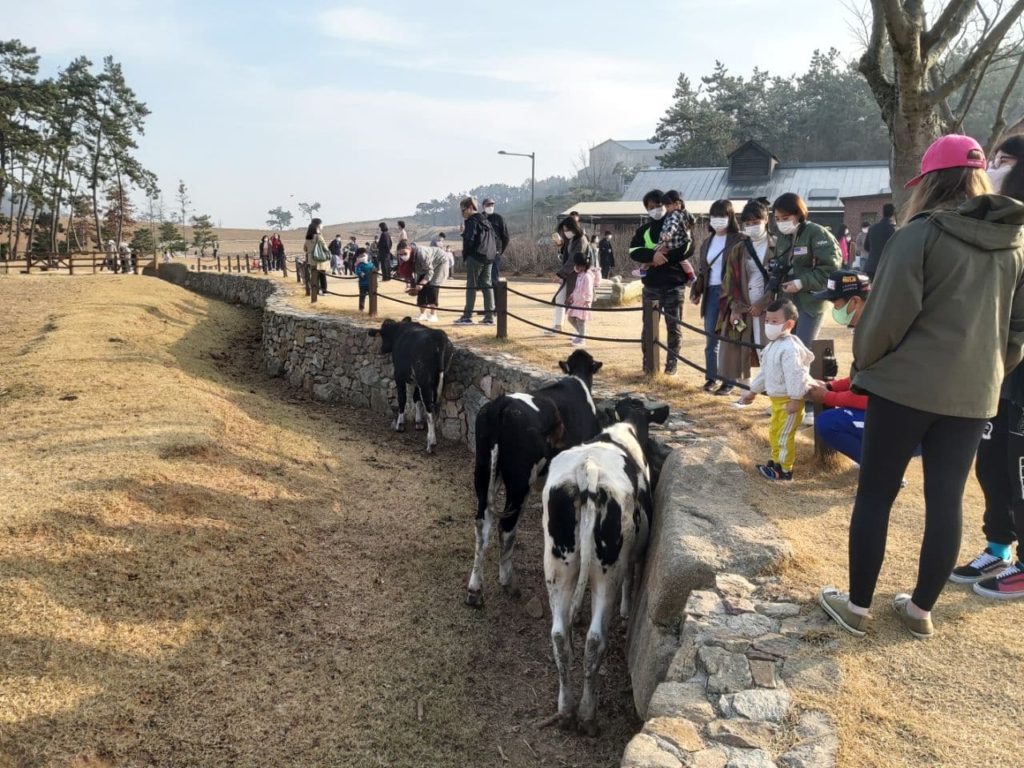
The Author
Melline Galani is a Romanian enthusiast, born and raised in the capital city of Bucharest, who is currently living in Gwangju. She likes new challenges, learning interesting things, and is incurably optimistic. Her favorite place in Jeolla is Sangha Farm. Instagram: @melligalanis







